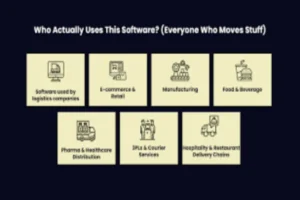Five Financial Topics Every Retiree Should Understand Before Making Big Decisions

Retirement can be one of the most rewarding stages of life, a time to enjoy the freedom you’ve worked hard to achieve. But before making any major financial decisions, it’s important to have a solid understanding of the key factors that can shape your future.
A successful retirement plan isn’t built on guesswork. It’s grounded in knowledge, strategy, and guidance from trusted professionals. That’s why understanding the essentials of income planning, tax strategy, investment planning, healthcare planning, and legacy planning can make such a difference. And for those who want to continue learning in a clear, approachable way, TruNorth Advisors Videos offers helpful insights to support informed decision-making.
1. Income Planning: Building Reliability Into Your Retirement
Once you stop working full-time, your lifestyle depends on the income you can generate from sources like Social Security, pensions, annuities, and withdrawals from retirement accounts. The challenge is ensuring those income streams are reliable and sustainable for the long term.
Effective income planning takes into account your spending needs, inflation, and the best order for drawing down your accounts. The goal is to give you confidence that your income will last so you can focus on enjoying your retirement, without worrying about running out of resources.
2. Tax Planning: Keeping More of What You’ve Earned
Even in retirement, taxes can take a significant bite out of your income if you don’t plan ahead. In North and South Carolina, certain retirement income is treated differently, and strategic withdrawals can help you manage your tax burden.
Tax planning strategies may include charitable giving, using tax-efficient investment vehicles, or restructuring how and when you take income from different accounts. By integrating tax planning into your retirement strategy, you can potentially reduce what you owe and keep more of your money working for you.
3. Investment Planning: Balancing Stability and Growth
Retirement doesn’t mean you stop investing; it means your priorities shift. Instead of chasing high returns, you may focus on stability, lower costs, and liquidity. That said, you still need enough growth in your portfolio to keep up with inflation and preserve your purchasing power.
A thoughtful investment plan reflects your risk comfort level and your need for both short-term access to funds and long-term growth. It should also be flexible enough to adapt as markets, interest rates, and your personal circumstances change.
4. Healthcare Planning: Preparing for the Unexpected
Healthcare can be one of the largest expenses in retirement, and costs often rise as we age. Medicare, supplemental insurance, and long-term care coverage all come with their own considerations.
Healthcare planning involves reviewing your current policies, identifying gaps in coverage, and preparing for expenses that may not be covered by insurance. Thinking ahead about your healthcare needs can help you protect your finances and maintain your quality of life.
5. Legacy Planning: Protecting What Matters Most
Legacy planning isn’t just about passing on wealth, it’s about making sure your wishes are honored and your loved ones are cared for. That might include updating beneficiary designations, creating trusts, or incorporating charitable giving into your plan.
By keeping your legacy plan current, you ensure that your assets transition smoothly and your beneficiaries are spared unnecessary stress.
Why Education Supports Better Retirement Outcomes
Even with a trusted advisor guiding you, staying informed about these five areas can help you make better choices. When you understand the “why” behind a strategy, you’re more confident in sticking with it and more prepared to make adjustments when needed.
Bringing It All Together
Each of these five financial topics, income, taxes, investments, healthcare, and legacy, is important on its own. But the real strength comes from seeing how they work together. A change in one area often affects the others, which is why a holistic approach to retirement planning is essential.
By combining ongoing education with the guidance of a fiduciary advisor, you can create a plan that reflects your goals, adapts as your life changes, and gives you the confidence to enjoy your retirement years.
Taking the Next Step
Before making your next big financial decision, take time to strengthen your understanding of the factors that matter most. Explore resources that explain these concepts clearly, and partner with a fiduciary advisor who can help you apply them to your own life.
To start building that knowledge, check out TruNorth Advisors Videos. Each video is designed to make complex topics easier to understand, so you can make informed decisions that align with your vision for the future.




